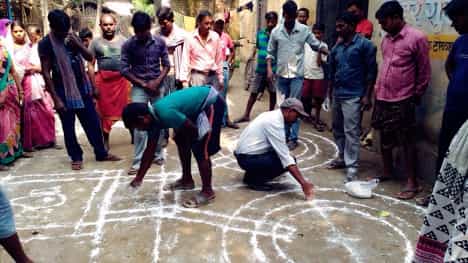UNICC is pleased to announce that four more UNDP Country Offices have been accepted as UNICC partners. While they leverage the existing UNDP Memorandum of Understanding (MOU), each office is working independently and directly with UNICC for innovative digital business solutions. They join UNDP Nigeria in working with UNICC, with some exciting projects coming up on digital health and National IDs. See the UNICC-UNDP Nigeria announcement here.
UNICC’s Business Relationship Manager for UNDP and its Country Offices is Anu Senan.
UNICC is pleased to have this additional reach to help with UNDP’s digital solutions, delivering initiatives on the ground around the globe, and the organization looks forward to success at the Country Office level for further partnerships with UNDP Regional and Country Offices, as well as field offices for its other Partner Organizations.
UNDP is the UN’s global development network, an organization advocating for change and connecting countries to knowledge, experience and resources to help people build a better life.
UNDP is on the ground in some 170 countries and territories, working with them on their own solutions to global and national development challenges. As they develop local capacity, they draw on the people of UNDP and its wide range of partners. New partners include:
About UNDP India
UNDP has worked in India since 1951 in almost all areas of human development, from systems and institutional strengthening to inclusive growth and sustainable livelihoods, as well as sustainable energy, environment and resilience. UNDP’s programmes continue to fully integrate a global vision for catalytic change with India’s national priorities.
With over 30 projects on the ground in almost every state, today UNDP India works to achieve the Sustainable Development Goals by transforming traditional models to do development differently. In a rapidly changing global environment, the work of UNDP and the broader UN family aligns with the Government of India’s new national development vision, India 2030, and builds upon the Sustainable Development Goals. UNDP India’s country programme for 2018-2022 has three major focus areas:
- Inclusive growth
- Environment and energy
- Strengthening systems and institutions.
These are supported by a framework of renewed partnerships and blended finance solutions, a pool of financial and technical resources for greater impact and scale, and South-South expertise.
UNDP Indonesia
UNDP believes that the people of Indonesia through UNDP Indonesia should have ownership over the programmes and projects we support. All UNDP programmes therefore actively promote the spirit of mutual respect, support and accountability and subscribe to the principle of national ownership as enshrined in the Jakarta Commitment – a declaration put forward by the government and its development partners in 2009 to strengthen aid effectiveness in Indonesia.
In the true spirit of national ownership, all of UNDP’s assistance in Indonesia is implemented by national entities, including line ministries and the Ministry of National Planning and Development, and at the subnational level by line departments, provincial and district authorities as well as community groups. While each programme supported by UNDP has specific and varied objectives, capacity development is one aim that all UNDP programmes – in Indonesia and worldwide – have in common.
This takes on many forms including institutional reform, leadership development, education, and training for members of the public such as journalists, and women’s communities. In line with this logic, UNDP advisers work side by side with Indonesian counterparts to strengthen capacities in technical matters, policy formulation and budget planning, amongst others.
About UNDP Malawi
UNDP Malawi has been present in the country since 1964 and works closely with the Government of Malawi, civil society, the private sector, and other partners to contribute to national development strategy.
UNDP Country Office in Malawi has two portfolios namely, Responsive Institutions and Citizen Engagement (RICE) and Resilience and Sustainable Growth (RSG), both working within the six Signature Solutions to help deliver the 2030 agenda –
- Keeping people out of poverty
- Governance for peaceful, just, and inclusive societies
- Crisis prevention and increased resilience
- Environment: nature-based solutions for development
- Clean, affordable energy
- Women’s empowerment and gender equality.
UNDP Papua New Guinea
Development challenges in Papua New Guinea are as diverse and complex as the country itself. To respond to these challenges, UNDP Papua New Guinea concentrates its efforts on building the country’s capacity to promote inclusive, pro-poor growth, effective governance, and sustainable and resilient development. We help our partners in identifying relevant solutions to today’s complex, trans-boundary development challenges.
Guided by the UNDP’s Country Programme Document for Papua New Guinea 2018-2022, advisory and implementation work focuses on the following areas:
- Peace: promoting inclusive governance, justice and peace
- Prosperity: inclusive and sustainable growth
- Planet: sustainable management of natural resources, biodiversity conservation, strengthened climate and disaster resilience.

